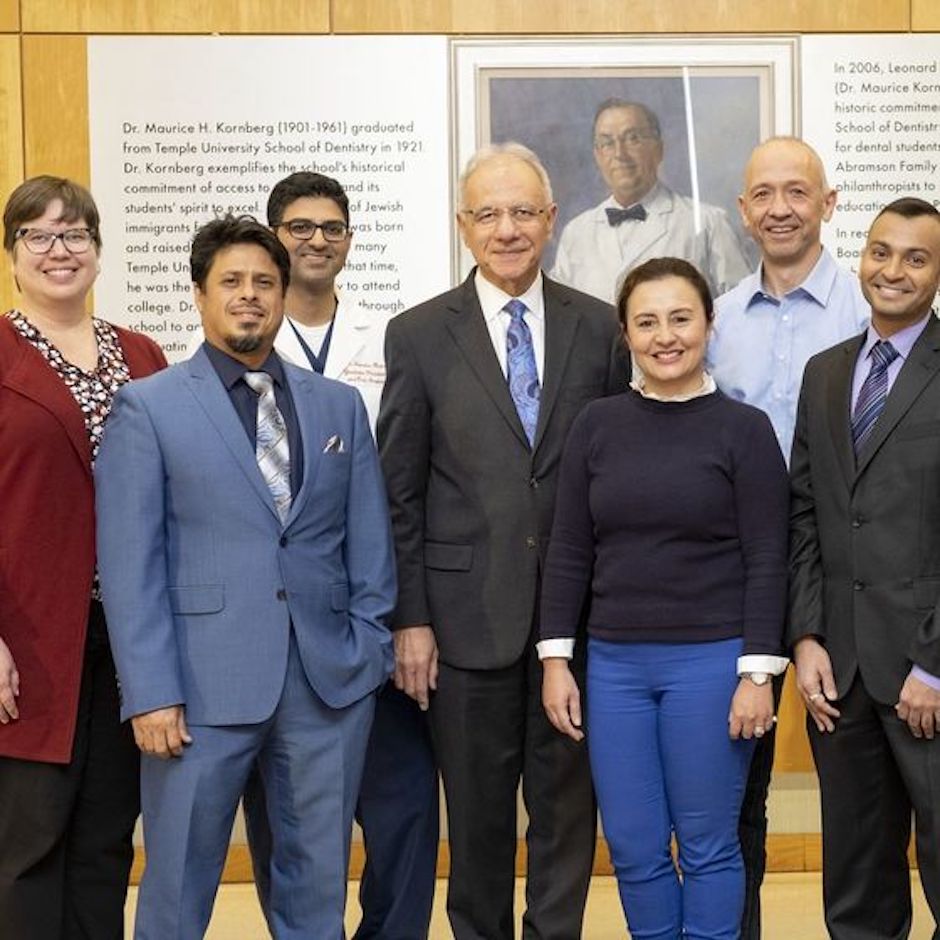(Photo credit: Joe Labolito)
The Kornberg School of Dentistry collaborates with the College of Public Health and the Lewis Katz School of Medicine on NIH-funded study.
The Maurice Kornberg School of Dentistry has secured a $3.6 million grant from the National Institutes of Health to spearhead a study, known as the Practice-based Research Integrating Multidisciplinary Experiences in Dental Schools (PRIMED), focused on predicting periodontal disease progression.
“This latest success represents a new milestone of rapid progress from the 160-year-old school,” said Amid Ismail, dean and Laura H. Carnell professor at the Kornberg School. “The school now has several NIH grants and that is also a testimony to the emergence of research and knowledge creation in new areas of oral healthcare. The school still maintains high-quality clinical education and practice standards for graduate predoctoral and postgraduate students to prepare them to practice and thrive.”
The Kornberg School, College of Public Health (CPH) and Lewis Katz School of Medicine are collaborating on the five-year project, which includes multifaceted research and training components.
“Our collaboration is exciting because interdisciplinary research leverages expertise and generates innovative ideas in a way that a single discipline cannot,” said Resa M. Jones, chair and associate professor in CPH’s Department of Epidemiology and Biostatistics.
“This multidisciplinary project provides an excellent opportunity for us to work together as research and clinically-focused partners and increase the capacity for meaningful practice-based research that can benefit the community.”
On the training side, the College of Public Health is preparing 20 Kornberg School junior clinical faculty and students for practice-based research. Faculty and students undergoing this training will receive an applied clinical research graduate certificate. Their training will be used to develop protocols at the Kornberg School.
The effort is led by Marisol Tellez Merchan, dean for research and chair of the Department of Oral Health Sciences at the Kornberg School. Researchers are aiming to identify factors leading to the progression of periodontal disease, an infection of the gum tissue that holds teeth in place, over time.
The study comes as 47% of adults aged 30 years and older and 79% of adults 65 years and older have some form of periodontal disease, according to the U.S. Centers for Disease Control and Prevention (CDC).
The first component of the study’s research involves the development of continuity of care records for patients being treated for periodontal disease at Kornberg clinics. The continuity of care records will utilize real time medical information that will be obtained from Pennsylvania Health Share Exchange. Collaborators from the Katz School of Medicine will help identify specific medical information from the Pennsylvania Health Share Exchange.
After continuity of care records have been developed, researchers will conduct a cohort study with more than 1,000 patients who have different levels of periodontal disease severity. Patients’ plaque and saliva samples will be collected, and the microbiology of periodontal disease will be analyzed. The team will also conduct a nested case control study to identify metagenomic biomarkers of severe disease progression.
“We will incorporate real-time medical information, data from our electronic dental record and microbiome information into the prediction of periodontal disease progression, which is something that will address methodological flaws of other studies conducted in the past,” Tellez explained.

